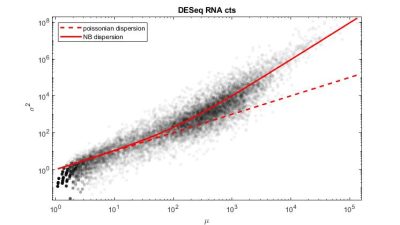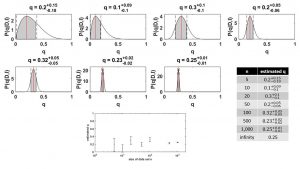
Statistics
20 hours, no prerequisites
An applied introduction to statistical concepts and methods commonly used in quantitative biosciences.
Date: 23–24.02.26 & 02–03.03.26
Time: 9:00–15:00
Location: Room K00.020, Biosys Building
Topics include:
- Hands-on work with Matlab
- Descriptive statistics (mean, variance, covariance)
- Probability distributions (binomial, normal, Poisson)
- Entropy and information theory
- Maximum likelihood estimation
- Parametric hypothesis testing (χ², Z-test, t-test, ANOVA)
- Non-parametric methods (rank tests, Kolmogorov–Smirnov test)
- RNA-seq analysis using DESeq
- Multivariate data visualization using PCA

